Hosted by Claire Musters
This month I’m reading…
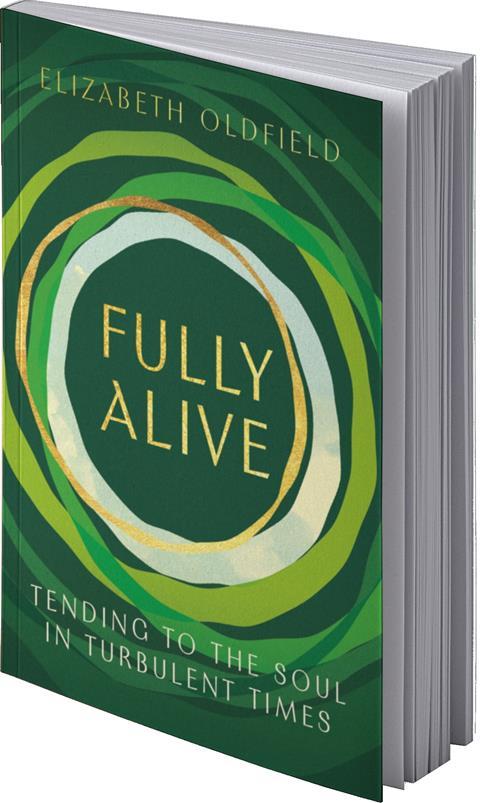
Fully Alive: Tending to the soul in turbulent times
By Elizabeth Oldfield
(Hodder & Stoughton, 978-1399810760)
I have to be honest and say I’m not 100 per cent sure of what I made of this book. It feels important, challenging and informative, and is beautifully written…and yet it left me riled at times. I oscillated between wondering why Elizabeth had felt the need to swear in the book (yes she lands the F word a few times, as well as others), and marvelling at how well she connects with culture and manages to explain spirituality in a way that so many will understand and be intrigued by. She isn’t shy about sharing her own experiences as a charismatic Christian and yet, as she explains in her final chapter, this isn’t specifically a book for those actively seeking faith (or for Christians): “This is a book designed for those in search of spiritual core strength and curious about what the practices, postures and principles of Christianity might have to teach them.”
Elizabeth runs the Sacred podcast, which is “a podcast about our deepest values, and how to talk to people different from ourselves”. She also lives in community, sharing her family’s life with another, as she feels it is closer to what she reads about in the Bible than our individualistic, lonely society. She wrestles with the big questions of life in this book, in her quest to be fully alive, using the structure of unpacking each of the seven deadly sins. She is incredibly upfront about her own struggles, shines a spotlight on our culture (calling out the dire consequences of individualism and tribalism, for example) as well as the Church at times and left me pondering how I interact with others with different views to my own. Elizabeth reveals the wisdom to be found in scripture without ramming it down the reader’s throat – and talks freely about how her faith grounds her. There were moments when I felt she shows the genius of Paul when he spoke to the people of Athens about the “unknown God” (Acts 17:23), pointing out the brokenness of our culture while gently pointing the way to the truth. Elizabeth knows human nature, expresses deep concepts masterfully and I would certainly recommend this book if you want a fresh perspective on how to interact with others around you – and indeed how to view the world and your relationship with it (and its creator) too. Just prepare to be disrupted!
You describe yourself in the introduction as being someone who should have long relegated Christianity to the scrap heap and yet your life went off script. You go on to describe an encounter with God, walking away from faith and then having another, slower, encounter in which it took time for you to feel comfortable in church. Could you describe why and what it was that helped you to feel rooted?
People helped, mainly. Realising I was not (shocker!) the first person to spot some of the complexities and questions, to doubt and wrestle. Being met with kindness and curiosity and support as I questioned, not fear and judgement. And ultimately, the sense that as much as I wanted to walk away from it all, God would not let me go.
You have spent years listening to atheists but say they seem to glory in meaninglessness. Why do you think this is, and why do you say you retain a soft spot for them?
Some atheists glory in meaninglessness – the public ones I was listening to, who were mainly of the ‘new atheist’ variety. I don’t think all atheists do, far from it. I do think it is harder to find meaning outside of a religious tradition, and it is exhausting having to invent a whole framework for yourself. I have a soft spot for atheists because I was one (or trying to be) and would probably be one without the grace and patience of God. Also, many of my friends are, and I believe they are made in the image of God and beloved by the very fact of their humanity. Now you have asked me I can’t think of a good reason why you wouldn’t have a soft spot for atheists! I’m pretty sure God does.
You are incredibly open and honest about your own life, including your failings and wrestling, which is refreshing. Why did you do this?
I have a wonderful agent who is not a Christian, and who I will be forever grateful to for taking a punt on this attempt at a mainstream book with these themes. We worked on the idea together, and she said to me: “Elizabeth, people will think this stuff is not for them, they will assume you are preachy or judgy about them until you show them otherwise. They have to trust you in order to listen and in order to trust you they have to know who you are.” The first versions of the proposal had almost none of me in them, and then over time it became more open, because she was right. It is easier to listen to ideas we might be nervous of if we have a sense of who is speaking and whether they have anything in common with us.
You indicate that you know all the arguments against your faith, but are now convinced there are “deep and applicable insights, rituals and practices here helpful even for those who would never go to church”. The book doesn’t directly talk about God until the final chapter, so what would you say to those who may wonder whether you’ve sold out in order to sell books?
Well firstly, the book is not the Alpha Course. More directly evangelistic materials are available. This was a gentle attempt to correct the fact that for my generation they will look for wisdom anywhere but here. I wanted to just lower the hostility a bit, to be in conversation with people far beyond the Church and translate some of the treasures for them. Having said that, nothing brings me more joy than when people come to know the love of God. I have just changed my mind on where that starts. For some people it starts with ‘belief’ but for many (most?) others it starts with the practices and communities – for example , praying even though you don’t know who you are praying to. So even though I don’t address God directly until the end, the whole book is shot through with things I think are likely to orient people in that direction, if they want to go there.
Why did you choose to structure the book around the seven deadly sins, and what do you feel that approach opened up for you?
I didn’t start with the structure. There were some things on my heart I wanted to write about for a mainstream audience – the ministry of reconciliation for example, knowing ourselves to be beloved in an age of status anxiety, and our deep interdependence that flows from a Trinitarian understanding – and was looking for a way to make them hang together. The seven sins seemed strange to me at first, but ended up being something that God used to work on my heart. I define sin as disconnection, and I was forced to see all these different ways I am prone to it, whether in the love of money and things (avarice), seeking to numb out with addictive behaviour rather than taking my feelings to prayer (gluttony) or resisting the demands of community (pride). It’s been so helpful.
What challenged you most as you were writing the book?
Thinking about avarice. The Bible has a lot to say about money and the love of it and “the deceitfulness of wealth” [Mark 4:19]. I found sitting with how direct it is enormously challenging. I think we are all hypocrites in this area. The only sermons on money I can remember hearing are during a service in which a special collection is being taken, and it often feels like the leader is trying to prime us to cough up, not tackle this central plank of discipleship.
I know this book wasn’t written specifically for Christians, but what do you hope Woman Alive readers will glean from it?
I hope it will comfort those who can feel a bit beleaguered and defensive in this changing cultural moment. We are the recipients of treasure and can be confident and curious as we seek to share it with the people who God loves and who don’t yet know it. I hope they will see, as I do, a moment of increasing spiritual openness and be ready to be hospitable and patient and loving with the people who are even now approaching Church with caution. And I hope they will be bold enough to buy a copy for a friend. I have made it as low risk as possible!
Elizabeth Oldfield on:
The books that have changed my life
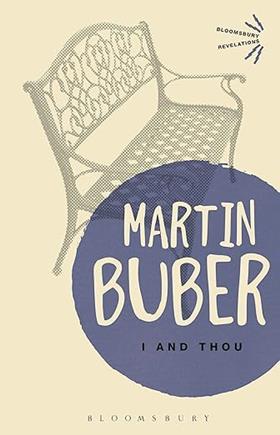
I and Thou by Martin Buber
This short book by a Jewish philosopher and theologian put words to my intuition that all of life is about relationships.
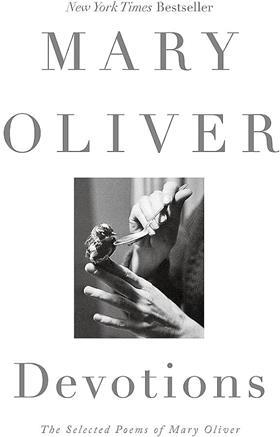
Devotions by Mary Oliver
Just wonderful poetry that always inspires me to pay attention to the wonders of creation.
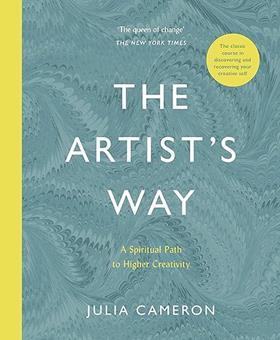
The Artist’s Way by Julia Cameron
The classic course for unlocking creativity is kooky, spirituality idiosyncratic.
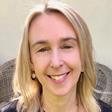











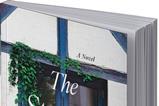

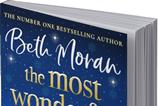


















No comments yet